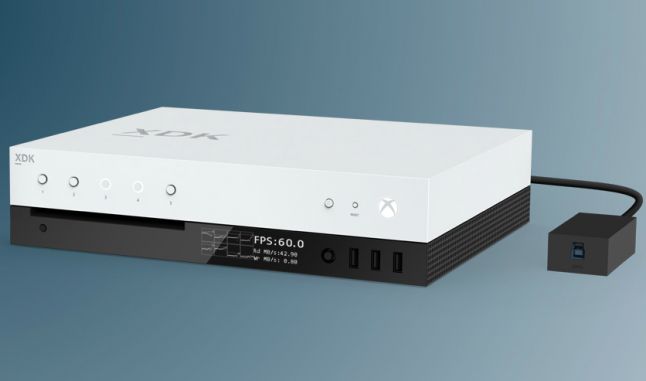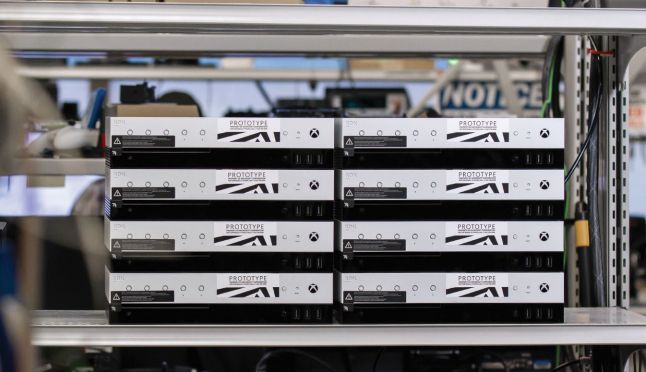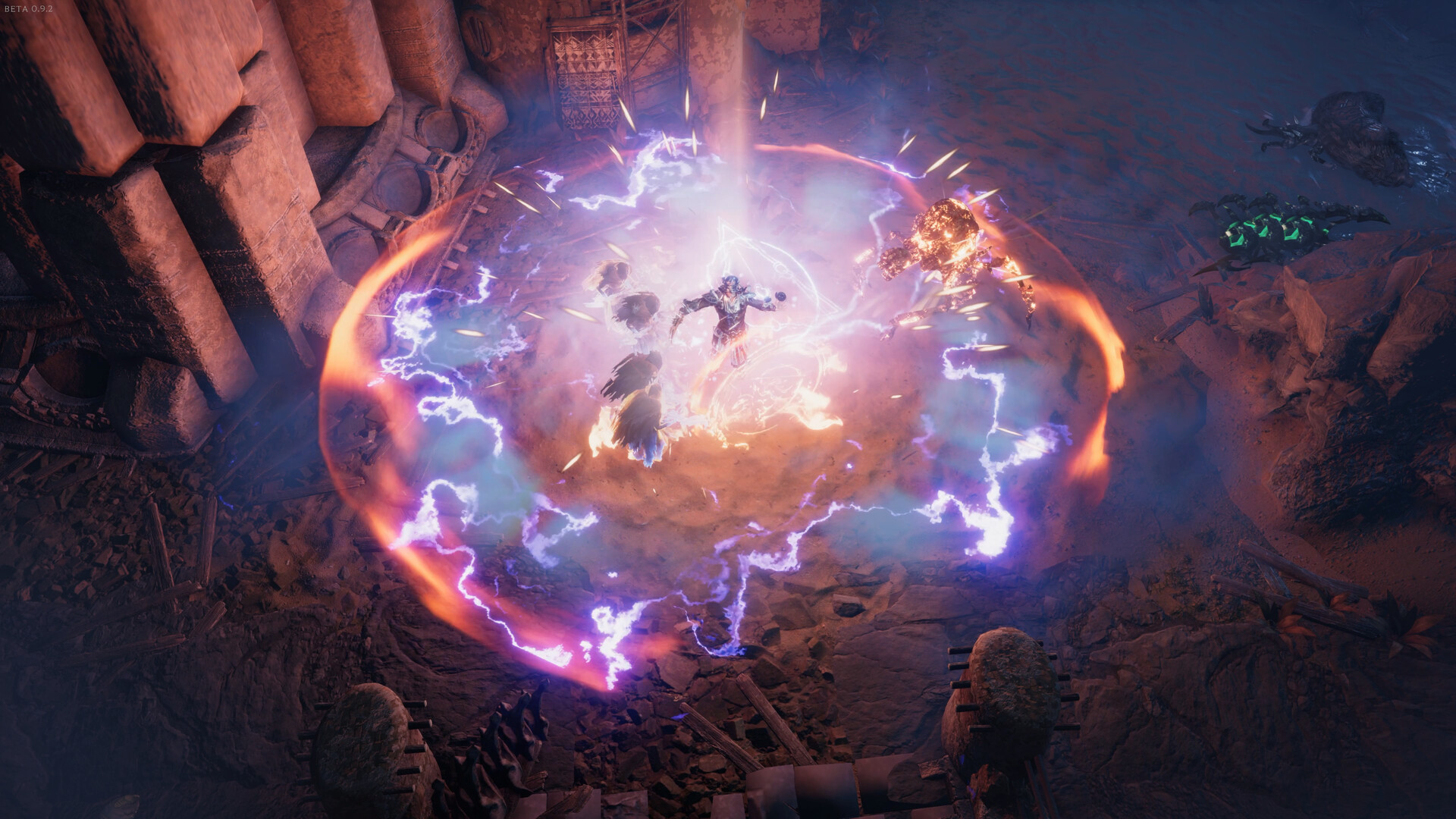Here's a look at Project Scorpio's Xbox dev kit, built to spec from developer feedback
Microsoft has revealed the Project Scorpio dev kit in an exclusive with Gamasutra.


Project Scorpio is the next Xbox, running a beastly 6 teraflops worth of GPU power, with 8-cores of heavily customized Jaguar CPUs. Microsoft has partnered with Gamasutra to offer a more in-depth look at how developers can leverage Project Scorpio dev kits to build their games, with some tantalizing new information on just how easy it will be for developers big and small to bring their games to the platform.
The Gamasutra article emphasizes how Microsoft has side-stepped the compatibility problem present in this mid-gen upgrade, which has seen Sony place a "boost mode" into their PlayStation 4 Pro to help non-patched games gain performance from the console's improved specs. Project Scorpio doesn't require any form of update to improve the performance of existing Xbox One games - they will run better automatically.
Microsoft is pitching the original Xbox One as the "minimum spec" developers should aim for while offering the opportunity to pile on Project Scorpio 4K assets for customers with that console.
The whole idea is to help developers hit native 4K, with 4K textures.
To accommodate developers, Project Scorpio will have a few additional compute units granting it 6.6 TFLOPS vs. the consumer version's 6.0. The dev kit also has double the GDDR5 RAM to hit 24GB, complete with an additional 1TB SSD for rapid deployment. Microsoft says that the additional GPU power is to help developers optimize their games downwards, rather than upwards. The whole idea is to help developers hit native 4K, with 4K textures, with HDR, wide color gamut, and Dolby Atmos spatial audio.
Microsoft reiterates that the Xbox One's ESRAM was axed due to developer requests and that developers will be able to access 8 GB of Scorpio's 12 for building their games. Microsoft also baked DX12 features directly into the hardware, substantially reducing the load on Scorpio's internals. Developers will, however, still need to leverage ESRAM for the Xbox One versions of their games, as Project Scorpio will not have any exclusives by policy (save for VR, potentially.)

Microsoft has been careful with its considerations for the dev kit. Placing the vents on the sides rather than the top to help with stacking, with a front panel display for real-time information, and an extra ethernet port for transmitting debug data. Microsoft is also ensuring the Scorpio dev kits come with high-speed data transfer cables and a seamless set-up experience to help developers reduce deployment time and promote efficiency.
One of my personal worries pertained to whether or not developers would have issues bringing third-party engines to Project Scorpio. Apparently, Microsoft is seeing similar results to Turn 10 Studios who build Forza, in that developers are bringing their games to the new Scorpio dev kit in record time:
Get the Windows Central Newsletter
All the latest news, reviews, and guides for Windows and Xbox diehards.
"What we've seen with some of the middleware partners, the first-party and third-party partners, people have actually been able to come in, get their game running, and running at 4K, in less than a day."
It certainly seems like Microsoft is clearing out every scrap of Scorpio hardware information ahead of E3 2017 so that the focus can be placed firmly on its games lineup. For the full rundown on Project Scorpio's shiny new development kit, head over to Gamasutra.
More: Everything you need to know about Project Scorpio

Jez Corden is the Executive Editor at Windows Central, focusing primarily on all things Xbox and gaming. Jez is known for breaking exclusive news and analysis as relates to the Microsoft ecosystem while being powered by tea. Follow on Twitter (X) and Threads, and listen to his XB2 Podcast, all about, you guessed it, Xbox!
